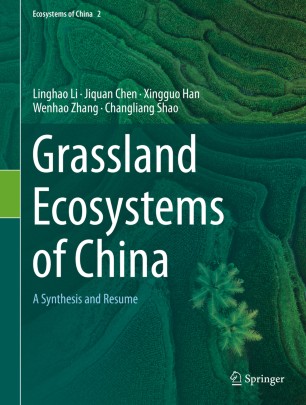Textbook provides detailed exploration of China's grasslands
Jiquan Chen of the Center for Global Change and Earth Observations (CGCEO), the Department of Geography, Environment, and Spatial Sciences, and the Ecology, Evolution, and Behavior (EEB) Program at Michigan State University, has joined several scholars in publishing the first in a planned series of volumes enabling the broader international community to explore the ecosystems of China. This first book, Grassland Ecosystems of China: A Synthesis and Resume, is particularly helpful for those interested in studying China's drylands and provides a comprehensive overview of its grassland ecosystems.
 Before the publication of this volume, a comprehensive overview of the topic has not
been widely available to an English-speaking audience. Although numerous scholarly
works have been published since the 1930s, particularly about the flora of China's
grasslands, the overwhelming majority of this literature has been published in Chinese
and, therefore, not widely utilized by an international scientific audience.
Before the publication of this volume, a comprehensive overview of the topic has not
been widely available to an English-speaking audience. Although numerous scholarly
works have been published since the 1930s, particularly about the flora of China's
grasslands, the overwhelming majority of this literature has been published in Chinese
and, therefore, not widely utilized by an international scientific audience.
In preparing the content for this volume, the primary author, Dr. Linghao Li of the State Key Laboratory of Vegetation and Environmental Change Institute of Botany in Beijing, China, compiled more than 10,000 scholarly publications. "Although we did not contribute as much as Dr. Li to this project, the critical work he undertook enabled the fellow co-authors to translate and synthesize this rich body of literature and data for an audience that up until now has really known very little about what China actually has," said Dr. Chen. "As far as I am aware, this is one of the first nature books published in English with detailed information and data about the plants, animals, and microbes for all of the grasslands in China."
Read more at SocSci.



